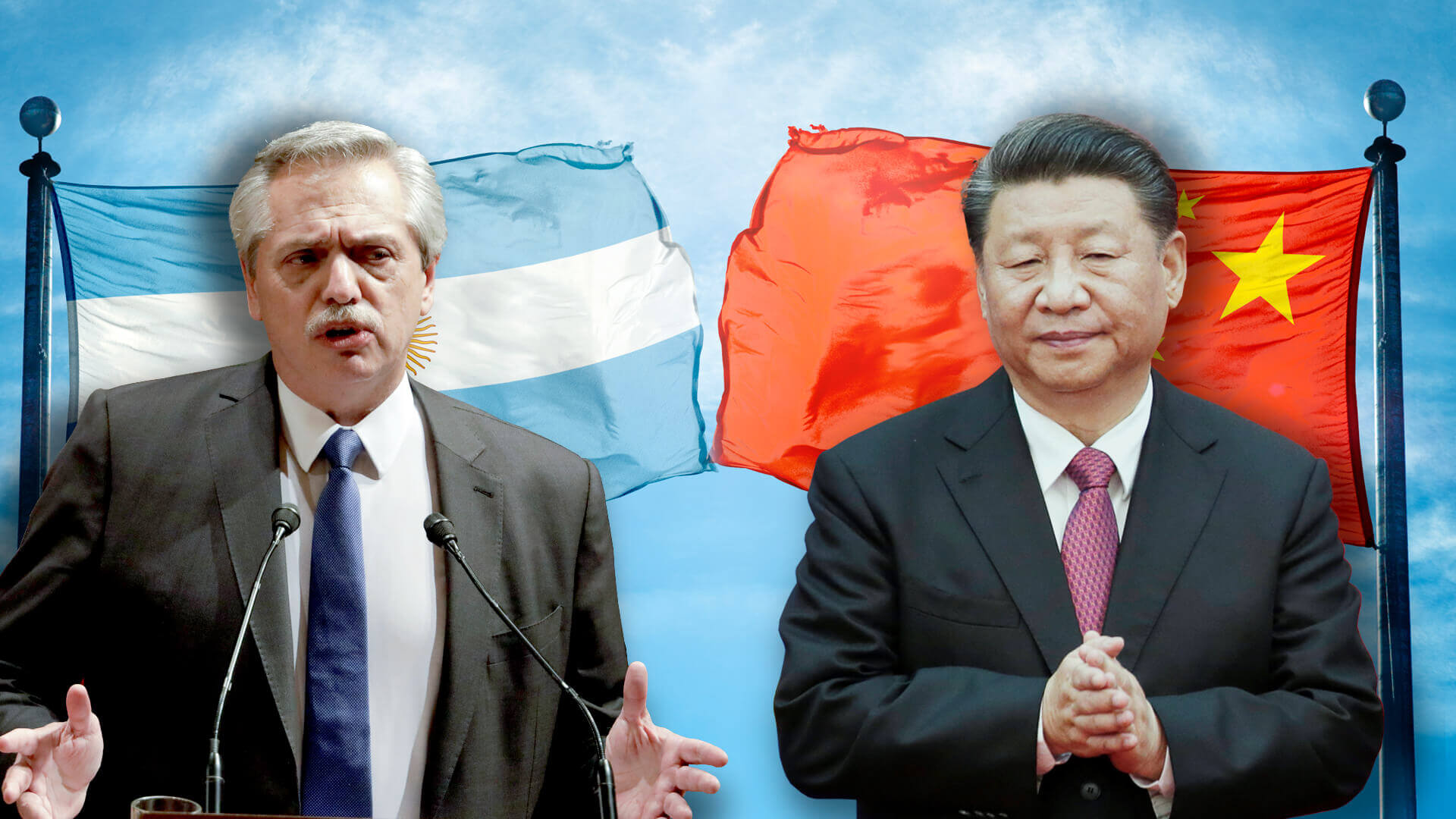Argentinian President Alberto Fernández held a 40-minute phone call with his Chinese counterpart Xi Jinping on September 29, wherein the two leaders spoke about cooperation in the containment of the coronavirus, trade, and diplomacy.
The Chinese leader committed to providing assistance to Argentina in its fight against the coronavirus by “deepen[ing] bilateral vaccine cooperation”, and joined hands with Fernández in supporting the efforts of the World Health Organization (WHO).
In a statement released by the Chinese government, it is revealed that Xi sought to highlight the importance of China’s relations with Argentina, and emphasized how his country “welcomes more good-quality agricultural and livestock products and high value-added commodities from Argentina”.
Xi also called on Fernández to pave the path for China to bolster its engagement with Mercosur, a regional trade agreement between Brazil, Argentina, Paraguay, and Uruguay, and the Community of Latin American and Caribbean States (CELAC). Xi is hopeful that Argentina will use its position in Mercosur and the CELAC to push China’s message and discourage actors like Paraguay, who in the past have recognized Taiwan as an independent country.
Simultaneously, he was enthusiastic about Argentina’s participation in the third China International Import Expo, and pushed for greater “people-to-people” and ‘strategic’ exchanges to deepen this partnership even further.
Xi also made clear China’s commitment to “multilateral frameworks, such as the United Nations (UN), the Group of 20 (G20), and the World Trade Organization (WTO)”, saying that they facilitate the movement towards an “open and inclusive world economy” that prioritizes “green, low-carbon and sustainable development”.
Fernández, for his part, noted that he has listened to Xi’s recent speech at the UN General Assembly (UNGA) with intent and ‘admired’ his “vision and commitment” to multilateralism and “tackling climate change”. He remarked that Argentina is hopeful of expanding bilateral cooperation in trade, investment, infrastructure, and finance, and cemented his interest in joining China’s Belt and Road Initiative (BRI). Thus far, in Latin America, China has already signed BRI agreements with Uruguay, Panamá, Chile, and Perú.
The Argentinian leader advertised his country as one which is rife for “direct foreign investments in energy, infrastructure, housing, and transportation projects” and invited China to become a “central player”.
He also expressed his gratitude to China for renewing the currency swap agreement, which the central banks of both countries use to exchange upwards of $18.5billion in yen and pesos. This agreement gives Argentina the opportunity to increase its financial reserves without accruing new external debts.
Lastly, Xi invited Fernández to visit China when severity of the coronavirus pandemic is lessened.
The phone call between the two leaders follows US Secretary of State Mike Pompeo recently visits to Brazil, Guyana, Suriname, and Colombia as part of his Latin America tour. Just a few weeks prior to that, Pompeo was present when Luis Rodolfo Abinader was sworn in as Dominican Republic’s 54th President.
Pompeo’s tour formed a crucial part of the US’ objective to increase its reach in Latin America in order to deter Chinese expansionism and simultaneously shift its own supply chains away from the East Asian giant.
In fact, in August, the US National Security Council unveiled its new Western Hemisphere Strategic Framework. In it, the US mentions how it is seeking to expand its “deep geographic, economic, and cultural” ties in its “neighborhood”. Simultaneously it seeks to counter “malign political influence” and “economic aggression” of China, which it says has increased its “state-driven trade, investment, diplomatic, technology, media, security, and health outreach” in the region.
Therefore, it appears that the world’s two foremost superpowers are competing to carve out pieces of the Latin American and Caribbean bloc for themselves.
Fernández is no doubt appreciative of China’s overtures, given the fragility of his rule. At the turn of the year, Argentina reported that its inflation rate in 2019 was 53.8%, the highest such figure since 1991, and the second-highest in Latin America after only crisis-torn Venezuela, demonstrating the sheer magnitude of the situation.
The cost of living has increased by close to 4%, and prices in the health, communications, home maintenance equipment, and food industries have sky-rocketed as well. Despite the tight monetary programs implemented in late 2018 after a currency crisis, Argentina has not only failed to reduce inflation but has also deepened the country’s recession.
This has led to widespread unrest and protests. Against this backdrop, Former Argentinian President Eduardo Duhalde, who ruled the country from 2002 to 2003, delivered an ominous message that hints at the possibility of a military coup amid political and economic turmoil in the country. Therefore, China’s helping hand comes at a most opportune moment for Fernández, who needs support to prop-up his flailing administration.

